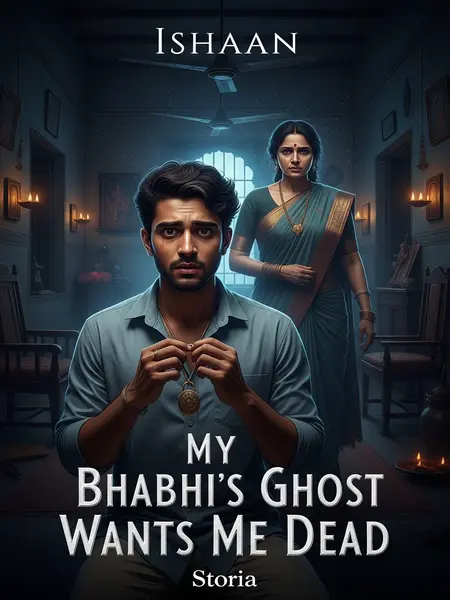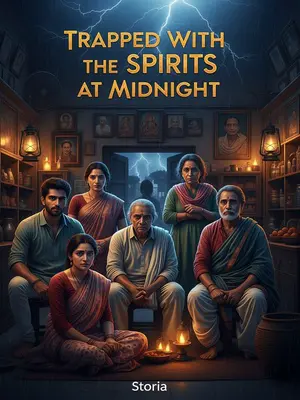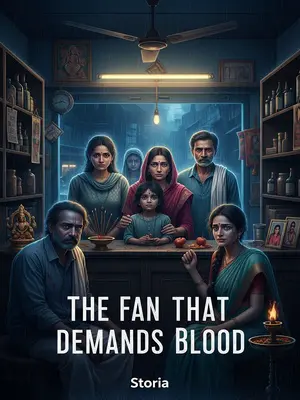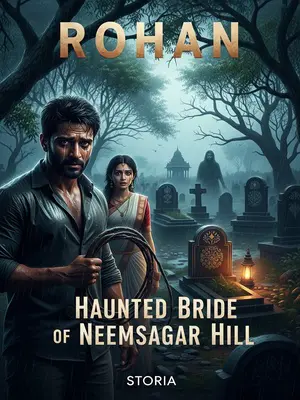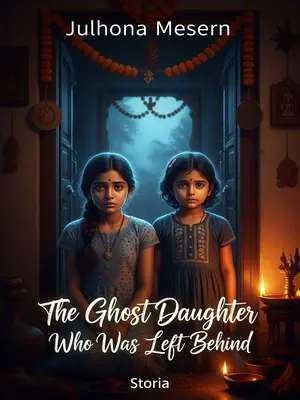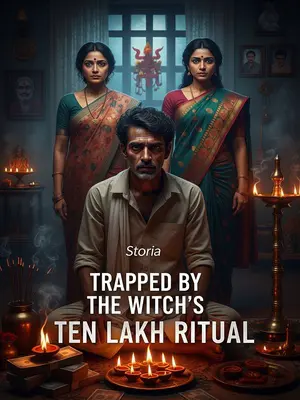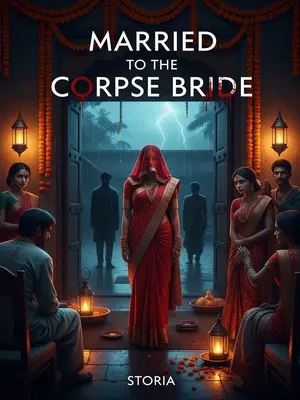Chapter 4: The Locket’s Secret
After a long silence, he turned to me. "Ishaan, go and lift the white cloth covering your bhabhi."
His words felt like a sentence, and my legs felt heavy as I moved forward. The white sheet seemed to glow in the dim light, ghostly and forbidding.
I braced myself and stepped forward. As soon as I lifted the cloth, I saw that my bhabhi’s belly—which had been flat that morning—was now swollen like a balloon.
The sight was so unnatural that for a second, I wondered if my eyes were playing tricks. The room grew colder, a hush falling as if even the gods were watching, waiting for what would happen next. My stomach lurched.
Pandit Mishra quickly stepped back two paces. He squeezed out a few words through clenched teeth: "Sins of fate can be forgiven; what we do to ourselves cannot."
His voice shook, full of something that was not just fear, but anger too. The words felt ancient, as if they belonged to another time, another world. My mother’s hand went to her mouth, stifling a sob.
My mother wanted to speak, to explain something, but Pandit Mishra waved her off. "Yeh paap ka bojh main nahi utha sakta. Tumhare ghar ki chhaya bhari hai."
He raised his palm, a gesture both final and desperate. My mother looked at the floor, tears streaming silently down her cheeks, her shoulders hunched as if she carried the weight of a thousand secrets.
Then he turned to me. "Ishaan, see me out."
He did not wait for my reply, just walked out with quick, determined steps. I followed, my mind spinning with questions and fear.
I took a deep breath and followed Pandit Mishra out. The sunlight outside felt harsh, almost blinding, after the gloom inside. I blinked, trying to steady my breathing, feeling the gold locket of dread settle in my chest.
After we had walked several hundred metres, and there was no one around, Pandit Mishra took out a small gold locket and pressed it into my hand. As he handed it over, he muttered a half-finished shloka under his breath, glancing at the rooftops as if afraid someone might overhear.
He looked over his shoulder, as if checking for eyes behind every shutter, then curled my fingers tightly around the locket. It was warm, almost alive, and heavier than it looked.
I was surprised. Pandit Mishra sighed. "Take it. After all, I watched you grow up, and you’ve always been a sharp child. This may save your life."
His words were so soft I could barely hear them over the rustle of peepal leaves. The locket glinted in the sunlight, and for a second, I felt the faintest spark of hope.
The gold locket felt warm in my palm. It was oddly comforting, the way only something from a trusted elder can be. I clutched it, silently promising myself I would not let it go.
I couldn’t help but ask, "Pandit ji, why did my bhabhi hang herself?"
The question slipped out before I could stop it, my voice barely above a whisper. The need to know gnawed at me, even as fear danced at the edges of my mind.
Pandit Mishra suddenly looked up, staring at me intently. His gaze made me uneasy. Just when I thought he wouldn’t answer, he spoke:
His eyes bore into mine, unblinking. It felt as though he could see straight into my soul, weighing every hidden fear.
"If you want to stay alive, remember three things. First, keep the gold locket I gave you, and don’t let anyone see it. Second, when you sleep at night, don’t sleep on the bed—sleep under it. Third, never ask about your bhabhi’s cause of death again. Don’t ask anyone. That’s all I have to say. Whether you listen or not is up to you."
The instructions were strange, chilling in their simplicity. The rules sounded like something from a grandmother’s ghost story—yet, seeing Pandit ji’s face, I knew he wasn’t joking. The world suddenly felt much bigger, and much scarier, than I had ever imagined.
As soon as he finished, Pandit Mishra didn’t wait for my reply. He left as if running away, afraid I would cling to him.
He didn’t look back, not even once. His chappals slapped against the lane as he disappeared around the corner, his shawl fluttering behind him like the last trace of comfort.
